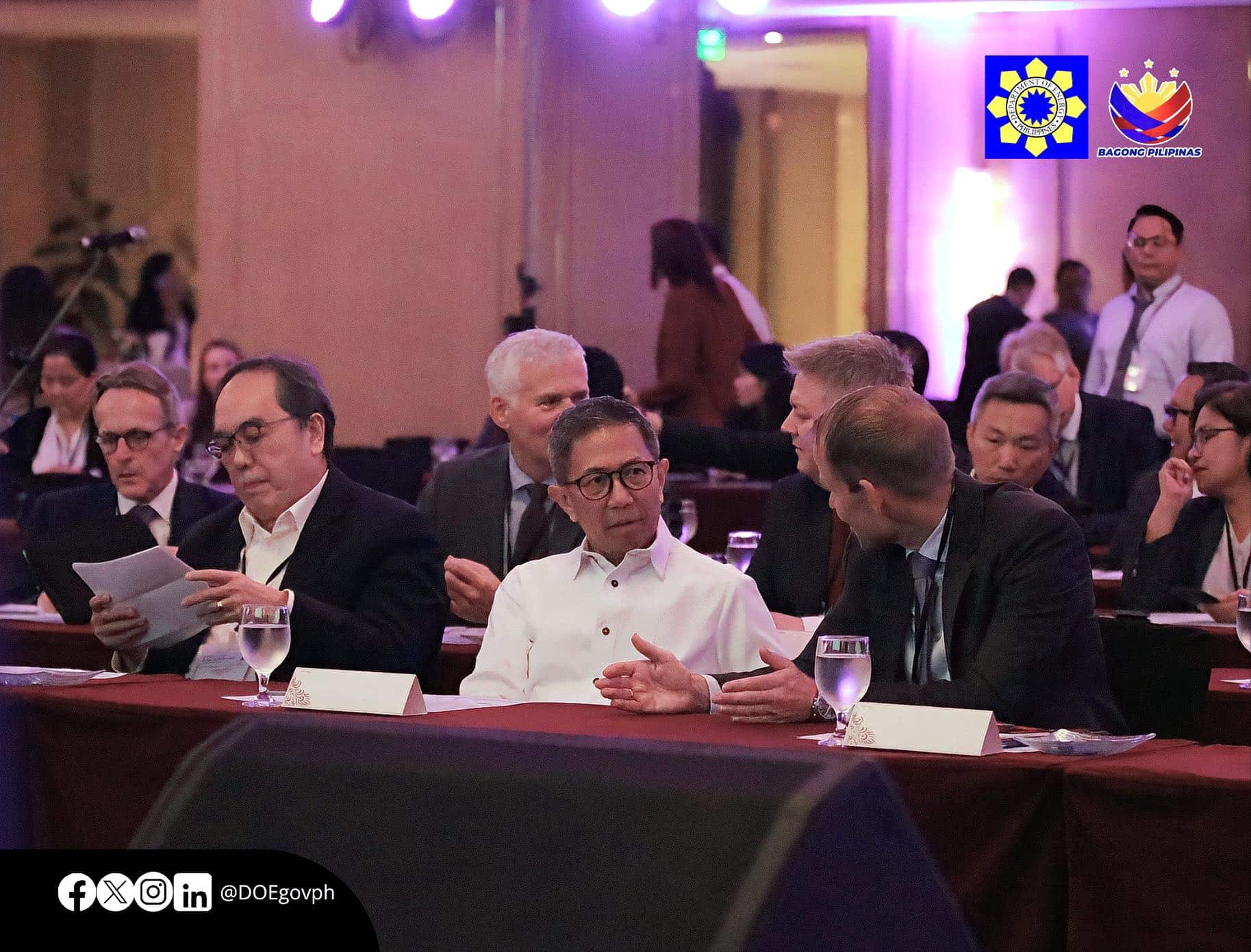PH wants partnership with Norway on sustainable aviation fuel

Energy Secretary Raphael Lotilla (center) underscores the role of natural gas in the shift to clean energy at the Norway-Philippines LNG Summit 2024 in Makati City. | Photo from Department of Energy Philippines Facebook account
The country’s energy chief hopes to explore a deal with Norway outside power generation, which may include the introduction of sustainable aviation fuel (SAF) using natural gas.
“Norway, which has a huge interest in shipping, is a natural ally of the Philippines for biofuels,” Energy Secretary Raphael Lotilla said during the Norway-Philippines LNG Summit on Monday.
In his speech, Lotilla said the traction for SAF and “cleaner fuels” for shipping between the Philippines and other nations, such as Saudi Arabia, has been growing.
READ: Southeast Asia seen to boost green aviation fuel industry
This space, he stressed, could be an opportunity for the Philippines and Norway to “do business and research together.”
Based on the DOE’s earlier statement, SAF is an “environmentally sustainable and chemically identical alternative to fossil fuel-based aviation fuel.”
Lotilla said the Philippines can bank on this potential partnership with Norway as he acknowledged the latter’s expertise in handling its natural resources, especially with the North Sea oil and gas.
“[It] provides insights that will be useful to this for the Philippines, especially in relation to our indigenous gas resources,” Lotilla said.
The government official said that Norway has shown that “the responsible management of natural resources requires clear regulations, prudent fiscal policies, and a commitment to continuously upgrading the skills of our workforce.”
Meanwhile, Lotilla also reiterated the role of liquefied natural gas (LNG) as transition fuel as the Philippines moves to embrace more clean energy projects.
“Today, LNG is stepping in to play a crucial role in our energy value chain. With two LNG terminals in Batangas Bay nearing full commercial operations, we are preparing to ensure the reliability of our gas-fired power plants,” Lotilla said.
The current administration is targeting to increase the share of renewables in the energy mix to 35 percent by 2030 from 22 percent at present.
